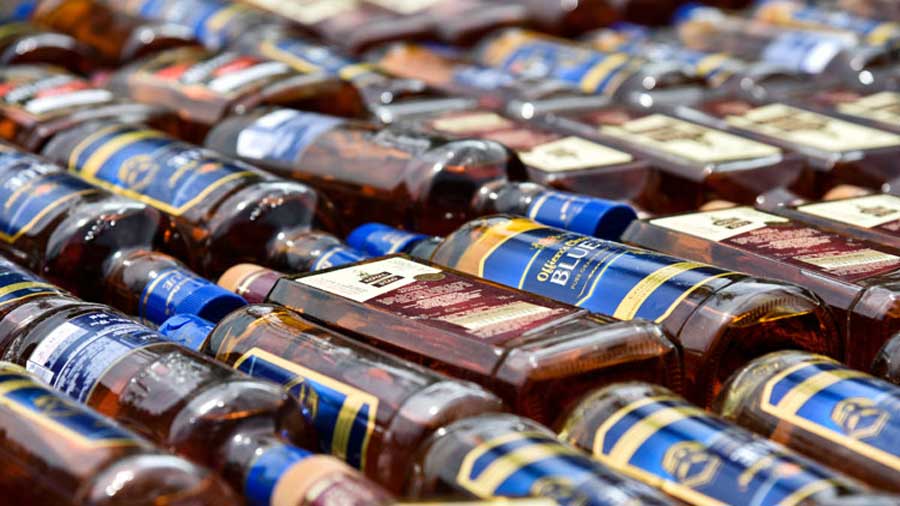Ten districts of Jharkhand that share borders with Bengal will have to observe dry days in view of the Bengal Assembly elections.
Earlier, only the bordering block used to mark dry day because of polling in a neighbouring district of the adjoining state.
Vinay Kumar Chaube, Jharkhand’ secretary-cum-excise commissioner, in a letter on Monday directed the deputy commissioners of the 10 districts to declare dry days according to the directions of the Election Commission of India to ensure free and fair polls in the neighbouring state.
Reminding that such prohibition is required as per the provisions of Section 35(c) of the People’s Representation Act, 1951, Chaubey asked the DCs to ensure that their districts remained dry for 48 hours until the end of polling, and also on May 2, the day of counting of votes.
Dry day will come into effect on Thursday evening and will continue till Saturday evening in Ranchi, Dhanbad, Bokaro, Ramgarh, East Singhbhum and Saraikela-Kharsawan districts in view of the first phase of polling in Purulia and some other areas of Jungle Mahal in Bengal.
Dhanbad, which also shares border with West Burdwan district, will observe dry day also during the seventh phase of polling slated for April 26. Three other districts — Jamtara, Sahebganj and Pakur — will have dry days for a 48-hour period during that time.
Jamtara, Sahebganj and Pakur will also have to follow the restrictions along with Dumka for the eighth and last phase on April 29.
All 10 districts will observe dry day again on May 2, the day of counting.
“This is nothing new,” said Achintya Shah, president of the Jharkhand Wine Dealers Association, adding that earlier such restrictions used to be implemented only in bordering blocks but had been extended to entire districts since the Bihar elections last year.
“The Jharkhand government should have requested the Election Commission to restrict the observance of dry days to the bordering areas only as it’s a revenue-earning enterprise and both the state government and the wine dealers suffer financial losses during dry days,” he said.











